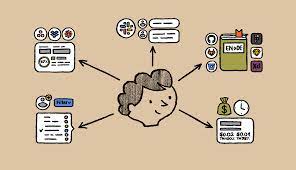Why You Should Invest in Content Localization Management Systems?

In Localization Management project management, content translations are indeed the most challenging thing. Your overall brand reputation depends on it, so you have to ensure your translations are higher quality and accurate. When you do content translations for a brand, it is not just the swapping of words from one language to another. Your translators, or whatever TMS tool you are using should have a good idea about the context of a given text. The translated meaning should resemble the original content. Moreover, you must also consider the cultural intricacies of the target region.
To effectively carry out your localization content management, you can get help from content localization management systems. It would support your translators and other employees to work in a more simplified and systematic way. Let’s have a look at some perks of investing in a professional localization content management platform.
Table of Contents
What Is a Content Localization Management System?
It is a tool made for streamlining the day-to-day content translation operations. Companies use content localization management systems to optimize their translation workflow, making it easier for the content teams to manage brand localization projects. Some of these systems also contain machine translation tools to generate automated translations. Unlike traditional content management, using localization content management would make the translation work quite hassle-free and easy. You can also tailor your content management tool to your unique content needs. Ask your vendor to create your customized package of all required features that you need to fulfill your content translation needs.
Benefits of Using a Content Management Linguistic Software
Professional content translation management systems come with plenty of benefits for international businesses. Below are some important pros of using a translation CMS to effectively manage your brand localization.
Quick Translation Management
The brands, targeting multiple marketplaces at once, have a hard time coping with the regular translation needs. Just relying on a human translator would be quite expensive and time-consuming at the same time. To smoothly manage your increasingly translated content needs into multiple languages, you must get your hands on professional content linguistic software. It would not just allow you to manage large volumes of translations, but also reduce your overall translation cost significantly. Your dependency on human staff would reduce, as all translations are now generated by the MT system in your CMS.
Consistent Translations
When you hire various human translators to work on the same localization project, the chances of inconsistent translation are higher. It is obvious that every translation has its own style and tone of translating the content. You have to have a system in place that will get all the translators on one ground. Content localization management systems also allow you to insert brand glossaries that contain all the necessary information that translators should know. From brand terminologies, acronyms and definitions, the glossary is a brand vocabulary that gives translators an idea about the brand voice. In case you are doing machine translation, you can insert glossaries into the system to generate relevant translations. So, using translation CMS would ensure that your translations are consistent in all target markets.
Manage Translation Files for Various Regions
If you are targeting different markets, all of your translated content has to be well-organized. Translation file management is one of the major challenges in a localization project. Most complications and delays only happen because file management processes are poorly organized. It further leads to errors, waste of time and resources, and employees’ frustration. That’s why, if you use a language service provider platform, it always has a well-organized way of translation file management.
With translation CMSs, your files get automatically stored at a central location. These files are easier to access through all TMS accounts. There will be no fuss, and no time wasted on sending emails and requesting the latest file versions.
Advanced Quality Assurance
Poor brand translations can badly affect the reputation of your brand in the foreign market. To build your credibility as a trustworthy brand, you have to come up with high-quality translations only. Professional localization CMSs have built-in quality assurance tools that upgrade the quality of your content by detecting and removing errors. Multiple QA testing processes are performed on translated files to ensure that it is error-free. It only takes around one minute for an average QA tool to perform quality testing and finalize the translation files.
Not just that, your human editors all love these CMS translation tools because now they have to spend less time proofreading the content as most of the errors have already been removed.
Enable Remote Translation Management
It is always recommended to hire native translators to do your multilingual brand translations. It means you will be hiring native translations from different regions of the world. Your content management tool would allow remote translators to collaborate with in-house translators to achieve desired results. So, there will be fewer chances of communication issues and gaps in understanding the translation project. project managers can directly communicate with remote workers, they can access the CMS tools any time they want, from remote locations. This way, you can easily work in collaboration with your internal and external translation teams.

